Visual perception Extra Challenge Worksheets for Ages 3-7
9 filtered results
-
From - To
Unlock your child's potential with our "Visual Perception Extra Challenge Worksheets for Ages 3-7"! Designed by early education experts, these engaging, age-appropriate activities enhance visual discrimination, pattern recognition, and spatial awareness. Perfect for young learners eager to tackle more challenging tasks, our worksheets make learning both fun and effective. Help your child strengthen essential early learning skills, boost their confidence, and ignite a lifelong love for learning. Available for instant download, our printable worksheets are great for home, school, or on-the-go learning. Equip your child with the tools they need for visual success today!
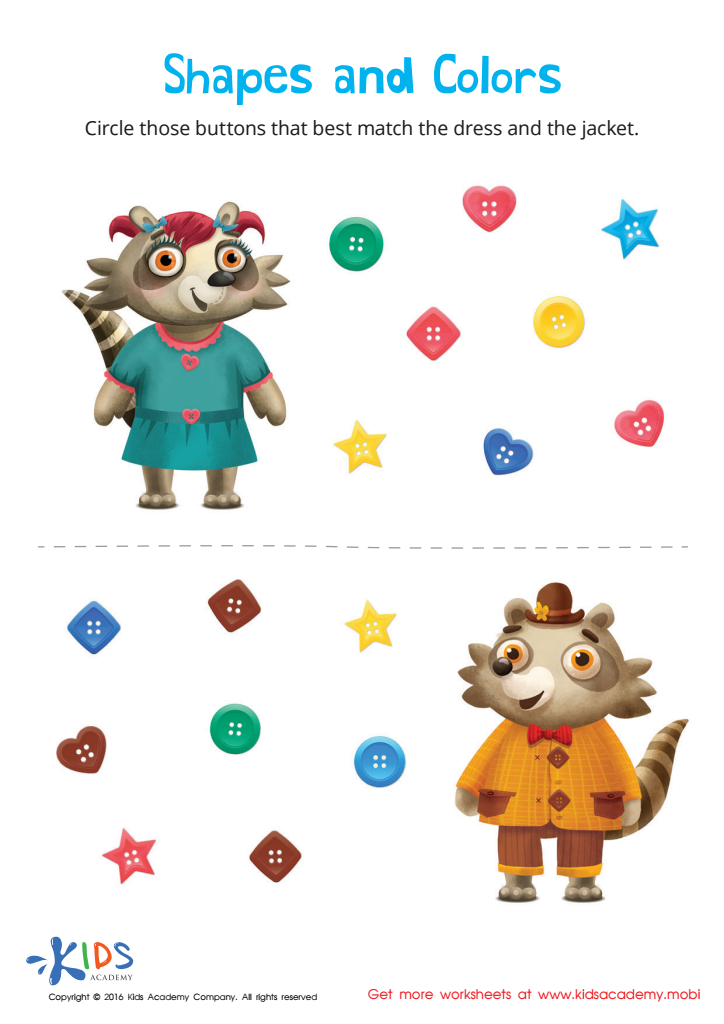

Matching: Shapes and Colors Worksheet
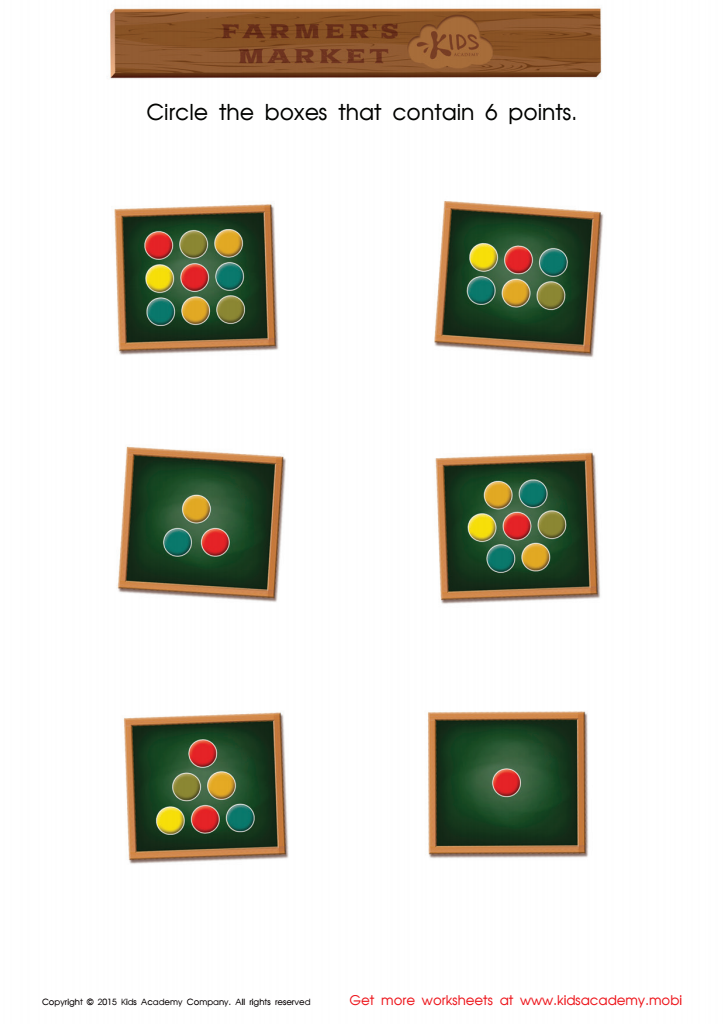

Count and Match Points 6 Math Worksheet
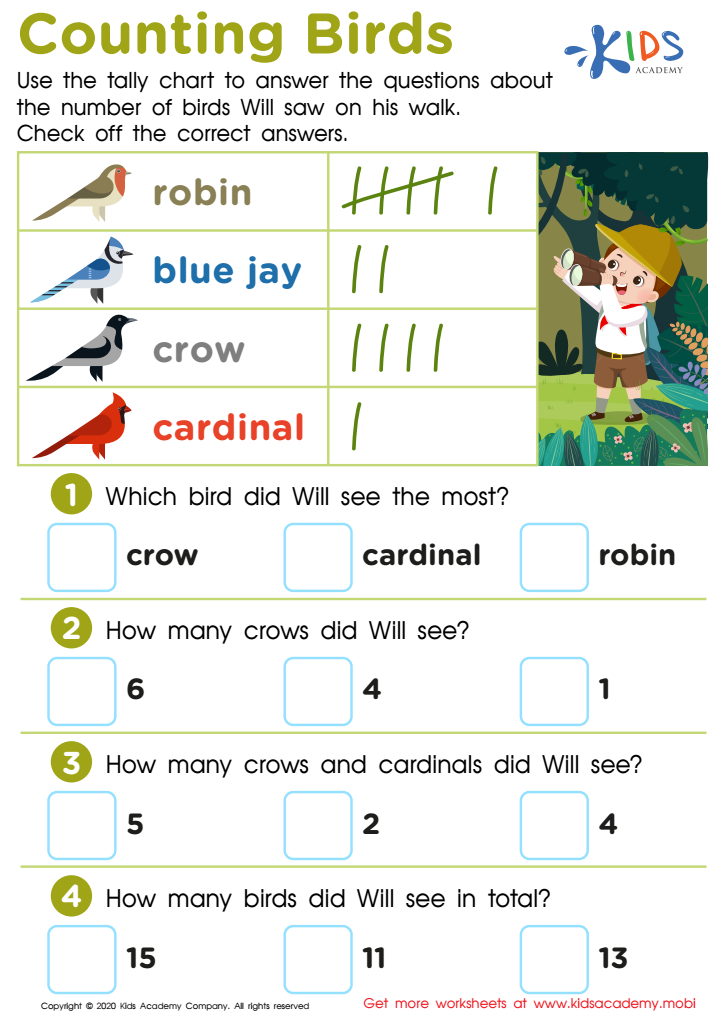

Counting Birds Worksheet
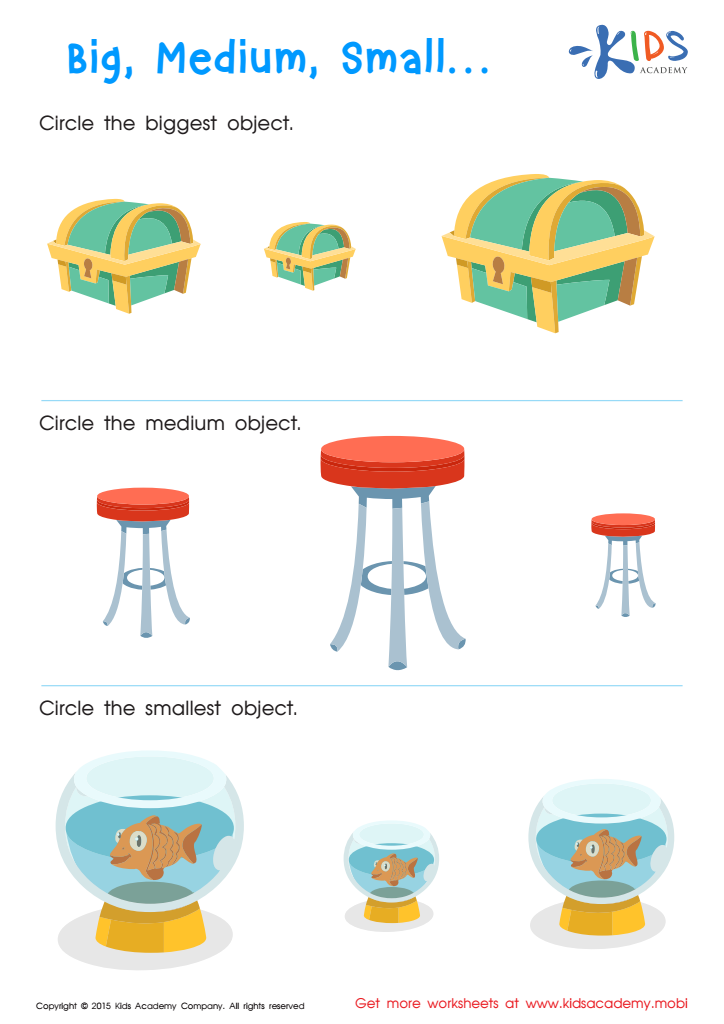

Big Medium Small Worksheet
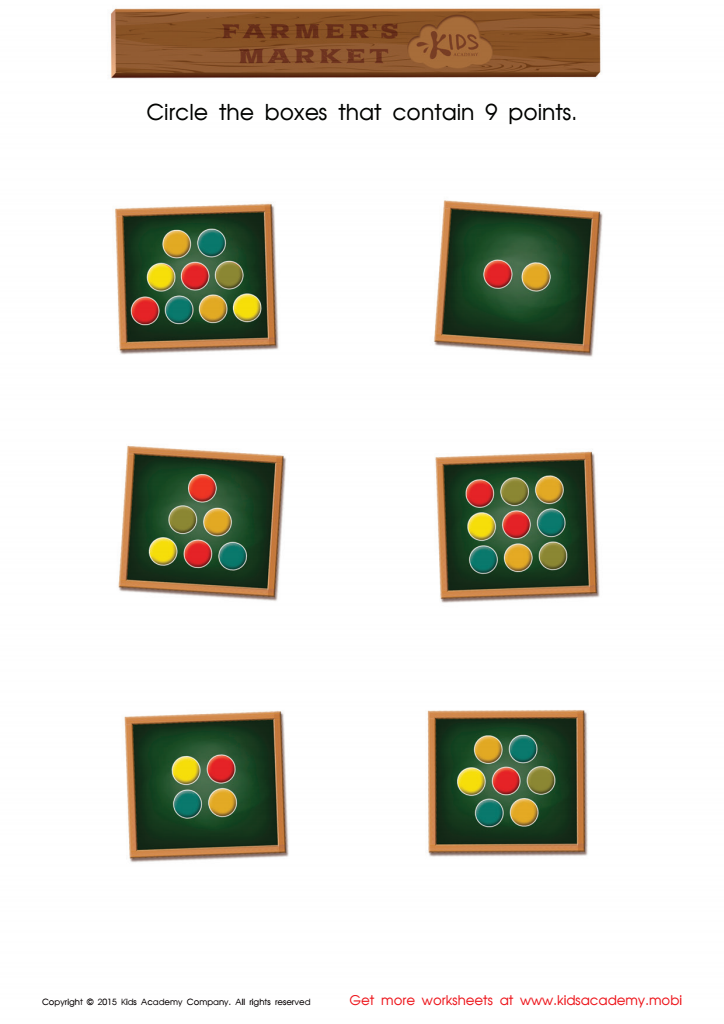

Count and Match Points 9 Math Worksheet
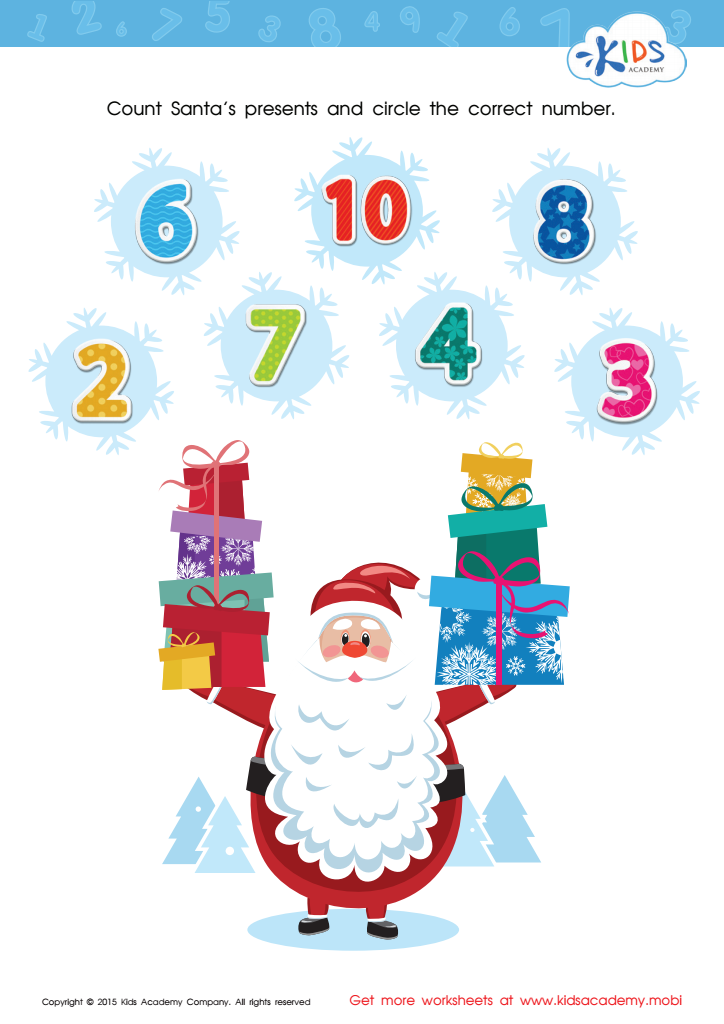

Count Santa's Presents Worksheet
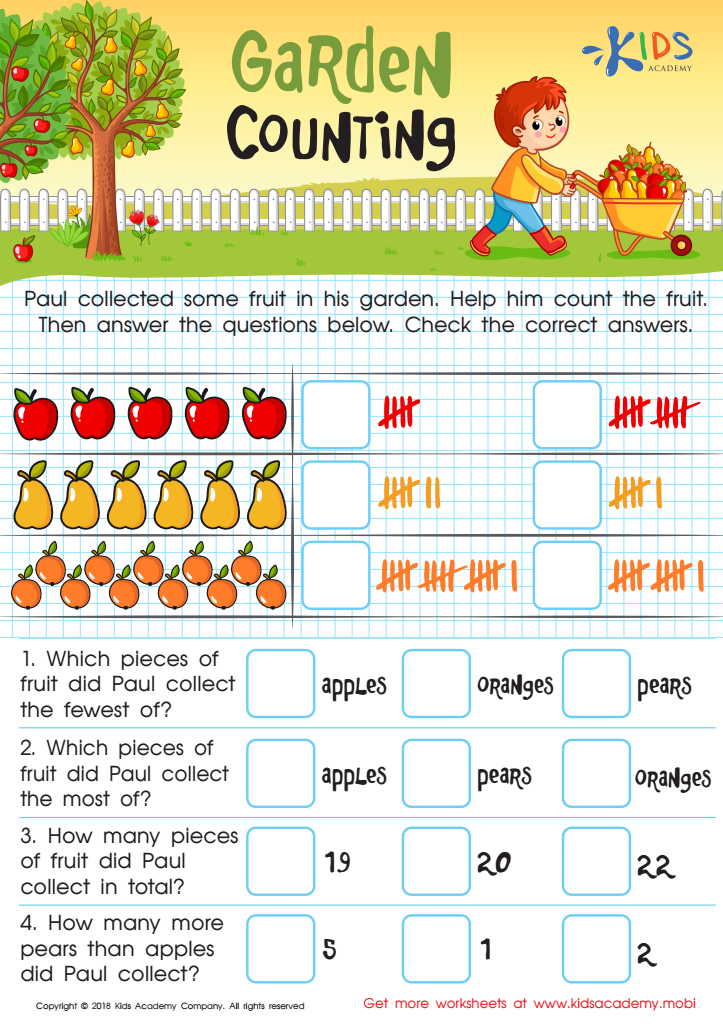

Garden Counting Worksheet
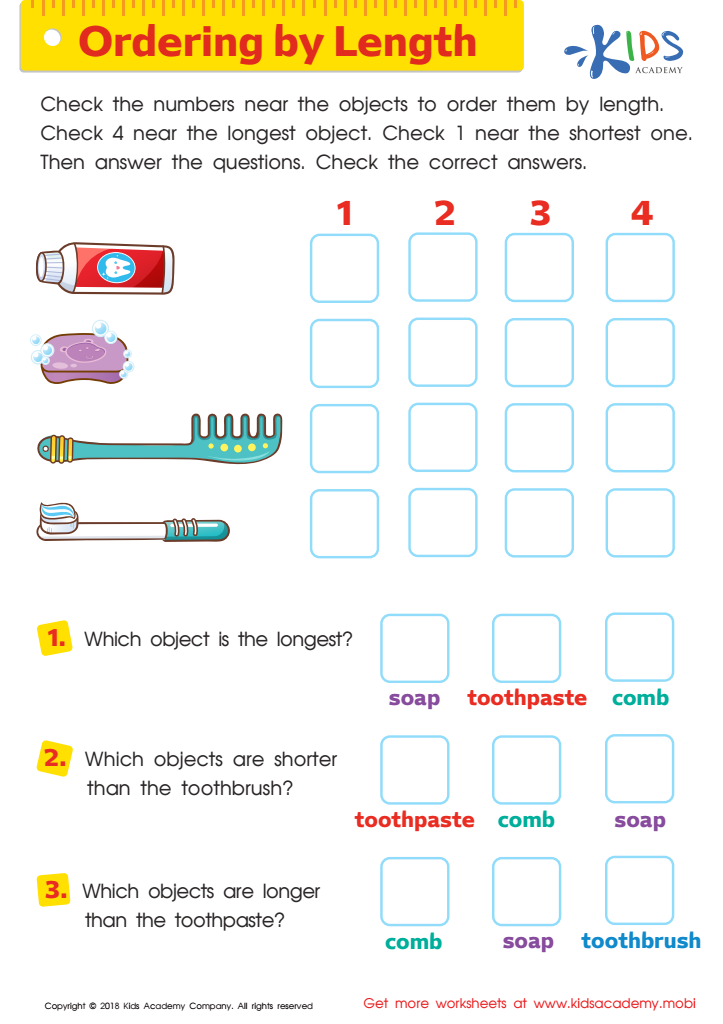

Ordering by Length Worksheet
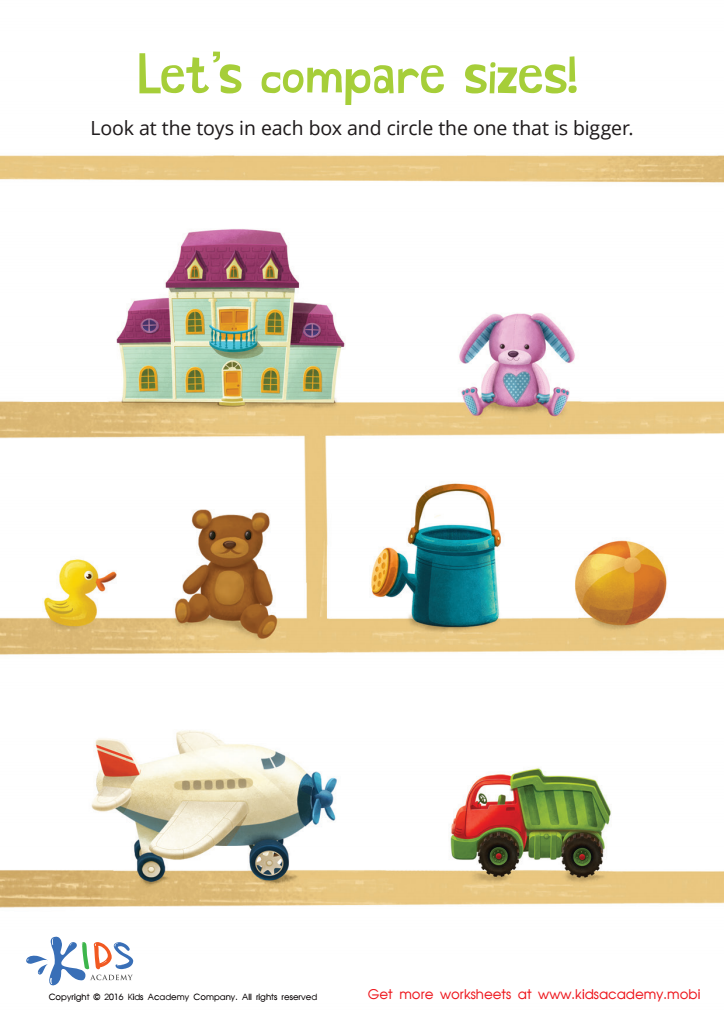

Classifying by Size Sorting Worksheet
Visual perception is the ability to interpret and make sense of visual information from the surrounding environment, a crucial skill for children aged 3-7, a period marked by significant cognitive and motor development. Parents and teachers should pay particular attention to enhancing this skill through extra challenges for several reasons.
Firstly, strong visual perception skills are foundational for reading, writing, and mathematics. For example, recognizing letters and numbers, distinguishing between similar shapes, and understanding spatial relationships are tasks directly linked to visual perception. Engaging activities that target these skills can ease the transition into formal schooling, where such abilities are essential.
Secondly, improved visual perception fosters better coordination and physical development. Activities such as puzzles, drawing, and matching games enhance fine motor skills and hand-eye coordination, imperative for everyday tasks like buttoning clothes, cutting with scissors, and tying shoelaces.
Moreover, structured visual perception challenges encourage problem-solving abilities and critical thinking. Children learn to assess visual information, detect patterns, and devise solutions, skills that transcend academics and are valuable in daily life.
Lastly, such activities can boost self-confidence. As children overcome visual and spatial challenges, they gain a sense of accomplishment that promotes a positive attitude toward learning and personal capability.
In conclusion, investing in visual perception challenges for young children isn't merely an academic exercise; it underpins comprehensive development, preparing them more robustly for future challenges.

 Assign to My Students
Assign to My Students





















